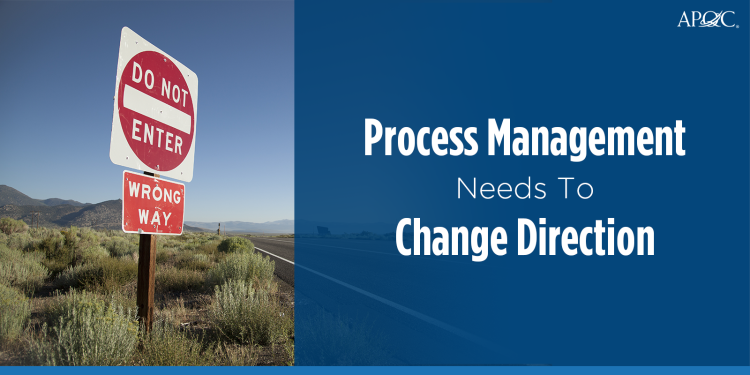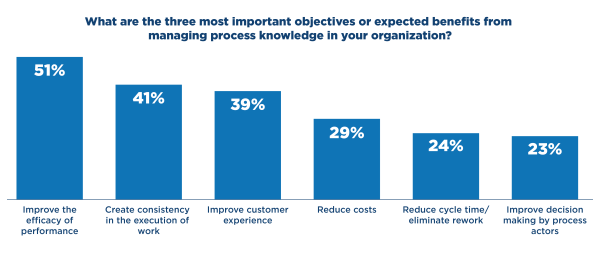
At our conference earlier this year, we brought KM and PPM professionals together; I heard more than once of the strong relationship between the two. And while this is evident in certain areas such as improved customer experience, reduced cycle time/elimination of rework, and upskilling employees, I began to wonder, are we missing key opportunities in this process and knowledge collaboration?
Knowledge and process management represent different disciplines with similar needs and goals, that when paired together can produce a magical balance in process and program efficiency and effectiveness.
Extrapolating from our 2023 Managing Process Knowledge survey that explored how process and knowledge management can be aligned to improve process performance, reduce risks, and increase employee engagement, I found the following area to be an opportunity gap in that magical balance.
Managing and Empowering People: The “What” and “How”
Regardless of the type of organization, it is generally agreed that people are the lifeblood. Specifically in KM, people are creating, managing, and retaining critical knowledge. That is the “What” piece, i.e., what type of knowledge is being managed. The “How” deals heavily in the process and in understanding how best can that knowledge be managed.
Here are some questions to consider in determining where knowledge and process fit in the what/how dynamic.
- Knowledge Management- What type of knowledge is being created? Who is creating and managing the knowledge?
- Process Management-How is the knowledge being stored and preserved over time? How is knowledge flowing throughout an organization?
In both areas, people are central to the cycle. While on the surface process seems like an automated process, it is only through the strategic oversight of people that processes can flow seamlessly. Even the best technology can not compensate for unskilled or disengaged people, broken processes, or knowledge stored in people’s heads or personal desktops.
Empower People to Support Technology
Most organizations understand that technology is a necessary enabler in process work but in an era of understaffed IT positions, there may not be enough talent in place to perform all technology-related issues, allow them to focus on higher-level tasks, satisfy their personal need for innovation, and help them meet their immediate work needs by allowing them to develop new skills and work in partnership with the IT versus relying on them to do the work for them.
APQC recommends establishing a Citizen Development program. Citizen development is a practice through which non-IT employees develop and implement digital tools, automation, machine learning (ML) applications, or even AI solutions using no-code or low-code platforms.
Citizen developers support the organization in more ways than one. Beyond, helping resolve IT issues that may arise, they are integral in the following areas:
- Need for skilled talent
- Increased agility and implementation
- Improved efficiency
- Partnership with IT
- Breaking down resistance to change
For quick tips on how to start a citizen development program at your organization, check out this infographic.
Furthering a KM and Process Collaboration
If there’s one clear takeaway from our Managing Process Knowledge survey, it is that there are evident benefits in a KM and process collaboration. There are also areas of opportunity that with a bit more digging and discovery, could create long-lasting improvements.
Here are some top collaboration benefits:
- improve efficacy of performance
- create consistency in execution of work
- improve customer experience
- reduce costs
- reduce cycle time/eliminate rework
- upskill employees
- minimize silos
Have you identified an opportunity gap(s) where a KM and Process collaboration would be useful at your organization? I’d love to hear from you. Please reach out to me, Madison Lundquist at [email protected] to set up a quick call!

